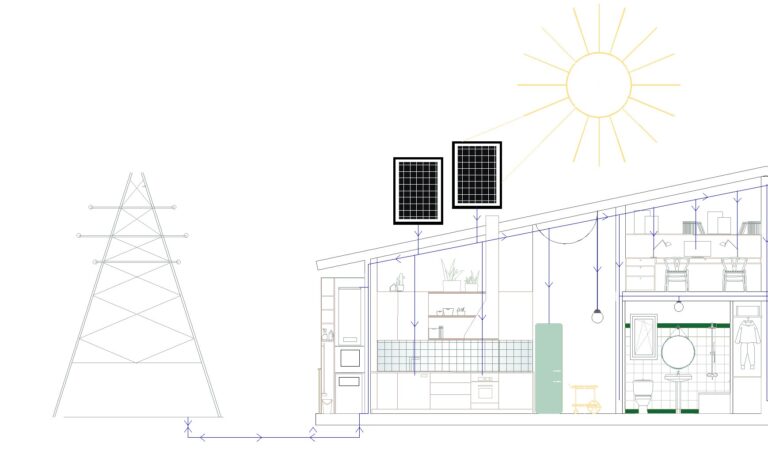
Introduction
Understanding the European Green Deal is crucial for society. Moreover, it is essential for every household to assume responsibility for adopting a more sustainable lifestyle. By doing so, the pact aims to enhance the well-being and health of both current and future generations.
This will be achieved by providing renovated, energy-efficient buildings and focusing on circular products that are durable, repairable, recyclable, and reusable. Enjoy reading!
Objectives
In December 2019, the European Commission presented the European Green Deal. Its primary goal is to transform the European Union (EU) into a climate-neutral, sustainable, and resource-efficient economy by 2050. Covering various sectors and policy areas, including energy, transport, agriculture, and construction, this binding agreement focuses on reducing greenhouse gas emissions and promoting green technologies and practices

Impact of the European Green Deal on Interior Design
Sustainable Building Standards
The Pact places significant emphasis on improving the energy efficiency of buildings and promoting sustainable building practices. Consequently, interior designers and architects must adopt environmentally friendly materials
Additionally, they must implement design strategies that reduce the carbon footprint of buildings. Efficient lighting, renewable energy sources, and innovative insulation methods will become more common.
Circular Economy
The Green Deal promotes the principles of the circular economy, encouraging waste reduction, material reuse, and recycling. Accordingly, interior designers and architects are expected to incorporate these principles into their projects.
This includes choosing materials that can be easily reused or recycled at the end of their life cycle.
Renovation Wave
The agreement will generate a ‘Renovation Wave’ initiative aimed at improving the energy performance of existing buildings. As a result, there will be a growing demand for renovation and refurbishment projects. Interior designers and architects, therefore, play a crucial role in updating buildings to meet higher energy efficiency standards
Sustainable Urban Planning
Cities will be designed to be more sustainable and livable. To achieve this, interior designers and architects will need to incorporate green spaces into their projects. Furthermore, integrating pedestrian-friendly designs and sustainable transportation options will be essential.
Innovative Technologies
Innovative technologies, such as smart building systems, green roofs, and energy-efficient appliances, are both important and encouraged. Thus, the interior design and architecture industry must keep up with the latest green technologies to provide sustainable solutions to their clients.
Biodiversity Considerations
Additionally, the agreement focuses on the protection and restoration of biodiversity. Consequently, interior designers and architects should consider biodiversity-friendly designs. This includes integrating nature and wildlife habitats into both urban and interior spaces

Conclusion
I hope this article has provided a comprehensive overview of the EU Green Deal and its impact on interior design and architecture. Should you wish to explore any of these topics further, please let us know. It might be the subject of our next blog article!
References:
- European Commission – European Green Deal: https://ec.europa.eu/info/strategy/priorities-2019-2024/european-green-deal_en
- European Parliament – The European Green Deal: https://www.europarl.europa.eu/RegData/etudes/BRIE/2020/646172/EPRS_BRI(2020)646172_EN.pdf
- World Green Building Council – The European Green Deal and the Construction Sector: The EU Construction Transition Pathway: World Green Building Council’s reaction – World Green Building Council (worldgbc.org)
- ArchDaily – How the European Green Deal Will Impact Architecture: https://www.archdaily.com/951061/how-the-european-green-deal-will-impact-architecture
- Architectural Record – The European Green Deal’s Impact on Architecture and Design: https://www.architecturalrecord.com/






